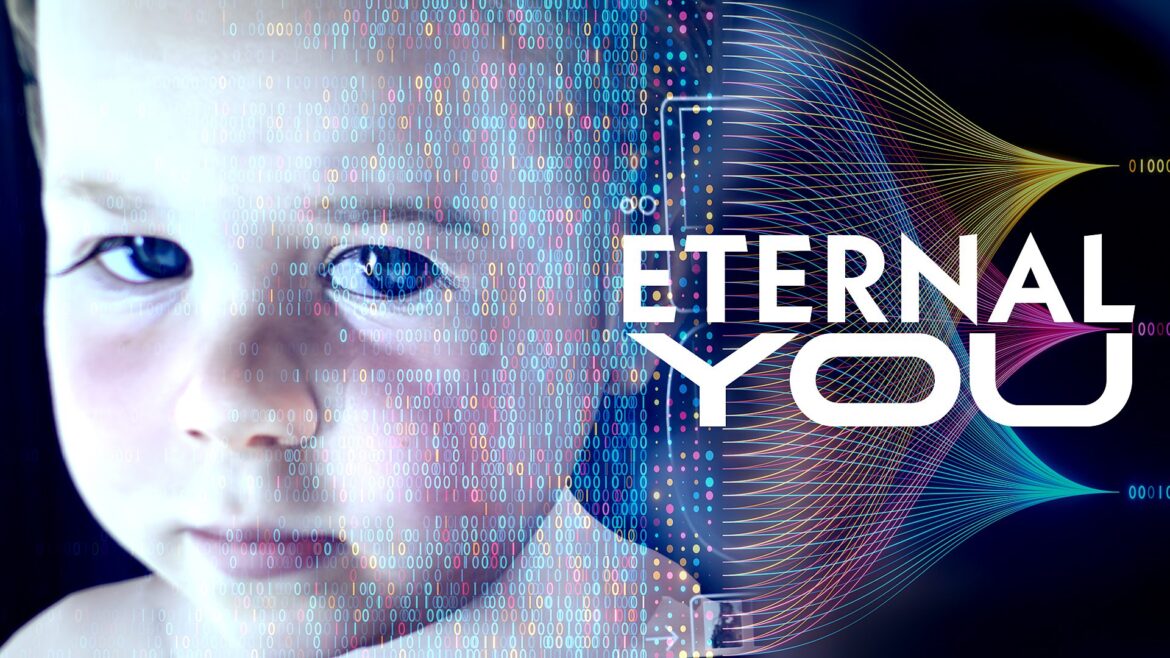In an era where artificial intelligence (AI) is rapidly evolving, the boundaries between life and death are becoming increasingly blurred. The 2024 documentary Eternal You, directed by Hans Block and Moritz Riesewieck, delves into the unsettling world of AI-generated avatars of the deceased, exploring the ethical, emotional, and philosophical implications of this emerging technology.
A Glimpse into the Digital Afterlife
Eternal You introduces viewers to a burgeoning industry where startups use AI to create digital avatars that mimic the personalities, voices, and even appearances of deceased individuals. These avatars are designed to provide comfort to the grieving by allowing them to interact with a semblance of their lost loved ones. The documentary presents a nuanced exploration of this phenomenon, featuring case studies of individuals who have engaged with these digital recreations.
One poignant example is Joshua Barbeau, who used AI to converse with a digital version of his late fiancée, Jessica. Their conversations, facilitated through a chatbot, offered Joshua a semblance of closure and connection. Similarly, Christi Angel and Stephenie Oney share their experiences of communicating with digital avatars of their deceased partners, highlighting the emotional complexities and comforts these interactions provide.
The Ethics of Immortality
While the technology offers solace to some, Eternal You raises critical ethical questions about the commodification of grief. Experts like Sherry Turkle, a professor of the Social Studies of Science and Technology at MIT, caution against the potential psychological harm of engaging with digital avatars. Turkle argues that these interactions might impede the natural grieving process, leading individuals to form attachments to artificial representations rather than confronting the reality of loss.
Moreover, the documentary delves into the business models of companies like Project December, which charge clients for the creation of these digital avatars. This commercialization of mourning raises concerns about exploitation and the ethical implications of profiting from human emotions.
Philosophical Reflections
Eternal You also prompts viewers to reflect on deeper philosophical questions about identity, memory, and the nature of existence. If an AI can replicate a person’s thoughts and behaviors, does it constitute the person themselves? What does it mean to preserve someone’s essence digitally, and at what cost? The documentary encourages audiences to consider whether these digital avatars honor the deceased or reduce their memory to a product.
A Balanced Perspective
Despite its critical examination, Eternal You maintains a balanced perspective, presenting both the potential benefits and drawbacks of digital afterlife technologies. It acknowledges the comfort some individuals find in reconnecting with lost loved ones through AI, while also highlighting the risks and ethical dilemmas involved. This nuanced approach allows viewers to form their own opinions about the implications of such technologies.
Reception and Impact
Upon its release, Eternal You garnered significant attention for its timely and thought-provoking content. The documentary was featured in prestigious film festivals, including Sundance and Hot Docs, and received critical acclaim for its in-depth exploration of a complex subject. Reviewers praised the film for its compelling storytelling and balanced approach, noting its ability to engage audiences in meaningful discussions about the intersection of technology and humanity.
Conclusion
Eternal You serves as a poignant reminder of the profound impact technology can have on our most intimate experiences. By exploring the digital afterlife industry, the documentary challenges viewers to consider the ethical, emotional, and philosophical dimensions of AI’s role in our lives and deaths. As we continue to advance technologically, Eternal You prompts us to reflect on the essence of what it means to be human and the ways in which we remember and honor those who have passed.

